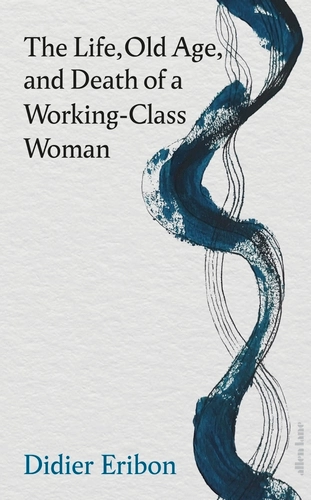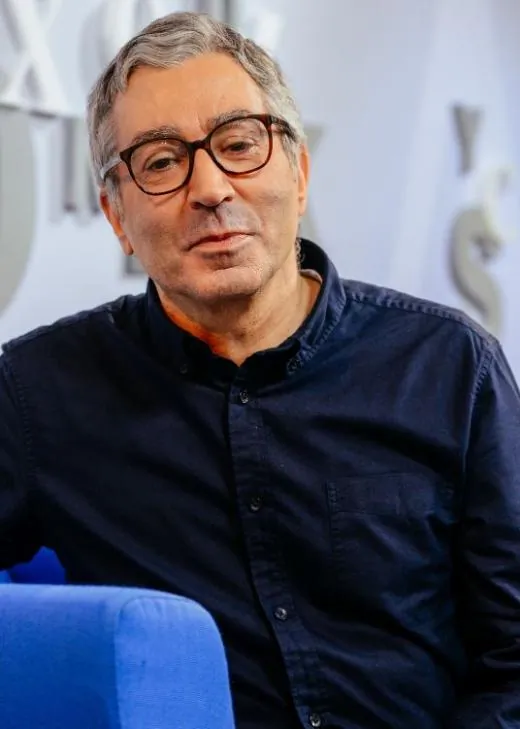Didier Eribon
I have become much more disciplined in recent times about buying new books.
This is partly related to the number of books that are waiting to be read when I find the time ! I am also beginning to think about what’s on my shelves and what might happen to them in future years when I need to live in a smaller space.
Many of the books in my Sarum College study are tools of the trade: teaching, supervising, researching, examining and writing. During a recent visit to Oxford I found my way into Blackwells. It was a hot day and I was taking refuge under a nearly Air-con while my friends searched the overflowing tables full of newly published books. This book was placed in my hand with the quip ‘this looks up your street.’ I looked at it rather suspiciously wondering how good the translation from French to English might be but, after a short moment of cogitating, the title captivated me and I bought it.
The story mirrored some of my own and I possibly parts of your experience and story too? In recent years our family, myself and my brother and tow sisters have experienced the death of our parents. My father died in late July 2023 of a sudden heart attack and my mother died in 2018 after long and excruciating battle with dementia. She was fortunate enough to have been able to die at home and to be cared for by the family. Place this alongside my long engagement with the shape of age and ageing. I have written and lectured on ageing and explored some of its questions from a pastoral, spiritual and theological perspective.
This is a personal book written by a prominent French sociologist who has written on matters of social class, identity, sexuality, and rebellion. Head and heart are held together in the narrative. At various points in my reading I wanted to ask Eribon to explain or say more. It is clear headed book written by a fretful man coming to terms with all kinds of questions following the death of his mother.
This story of Eribon’s mother is all too familiar. A slow, painful decline and the associated challenges of the sacrifice of her autonomy especially in her independence of living. The book tells the painful story of his mother but also combined this with the incisive intellectual questions about what age means. The social analysis explores some of the social and political dimensions of what age means. In reading these chapters the reader is invited to consider their attitudes to age and parents. In this story telling how do we handle the space between the head and the heart? How honest or vulnerable are we readers prepared to be ?
This is a personal and a political book. The brothers gradually experience their mother’s decline as she begins to lose her cognitive and physical autonomy. Like many siblings they live a long way away and are absorbed in the sheer relentlessness of career, family and growing up. There is a wonderful and skilful attention to detail. We learn about transport, rural living, the economy, isolation, geography, choice and the unpredictability of systems and its approaches to older people and their care.
Eventually, after several months of resistance, Didier Eribon’s mother began to lose her physical and cognitive autonomy. The family were forced to put her in a nursing home and a short few weeks later she died.
What I most appreciated about this book was the ability of Eribon to name and describe the serious complexities and contradictions that lie both within us all but also in the wider culture which continues to fail to understand ageing . He invites his reader to consider their commitment to some serious social, political and cultural change in this area of social and political policy.
The irony of this is clear. Eribon reminds us all that we have a vested interest in the quality of social care. As we grow older we should care about the cultural attitudes that disable and diminish both older people and ageing.
I remember a visit to a local hospital where my mother was being cared for following ( I think ) a fall. I experienced the environment and her care as both unacceptable and shocking. appalling. I observed that there was not much understanding of her frailty nor any desire to see behind her behaviour the dementia which was so destructive for her life. The nurses were officious and impatient, which felt to me to be unkind. Of course they were pressed and tired and perhaps even undervalued but there’s something very much deeper than this going on. It is our ageism and our inability to consider a different set of when we consider age and its frailties. It is this that Eribon names so well.
It is not made explicit in the book the relationship between son and mother. It is seems to be clearly complicated. Don’t all sons and daughters share in this fragile, life giving and anger making reality ? How can we possibly understand the totality of our parents, especially our mothers? What story would you tell of yours and your experience of being a child? What do we want as children of our parents and how far are we ready to forgive them for their best not being the best that we might have wanted? Our human nature is just complicated and misshaped by all kinds of experiences which bring us both life and death.
Eribon the sociologist brings to bear has learning in discussing his ideas about age and aging, but also the business of parenting and what we are to make of the legacy of our experience of our parents. I was moved to tears reading the account of his mother’s aging, and decline. It is strange to note that at no point do we ever become familiar with his mother’s first name. I think there is anger here together with a very healthy dose of both grief and guilt.
He quotes writers – Beckett, Ernaux, Solzhenitsyn, Coetzee – and his great philosophical mentors – Foucault, Sartre, De Beauvoir, Bourdieu – to comprehend his loss. This is illuminating and insightful, but this reader wanted to know a little more of his inner territory. Does his mother’s death faces him with his own disconnectedness and loss and regret? How is grief ever healed ?
It may be that one of the reasons why we are so paralysed in our attempts to engage more generatively about aging is that we fear it so fundamentally in and for ourselves. When we cry following the death of our parents, perhaps it is for ourselves that we are crying for we know it is our turn next. Honour, respect, guilt, pain and anger infuse the text of this book as the reader is asked to consider the deeper purposes of our lives and our need to prepare for death.
Eribon combines the social, the political and the intimate in this honest text which has shame deeply embedded inn it for him. This is shame both about his background and the shame at being ashamed. This cannot be the final word for him or for us. It made me wonder whether theology in its healthier, more open and progressive shape and colour can help as a way to reconsider who we are and the story we tell of ourselves.
In all of this self preoccupation we need to use the connections that are offered to us to deal with inequality and especially the inequality that so dominates our attitudes to Ageing.
This is not an easy read but it is stimulating and honest. So thank you Didier Eribon and ( if I may say ) also to your Mother !


